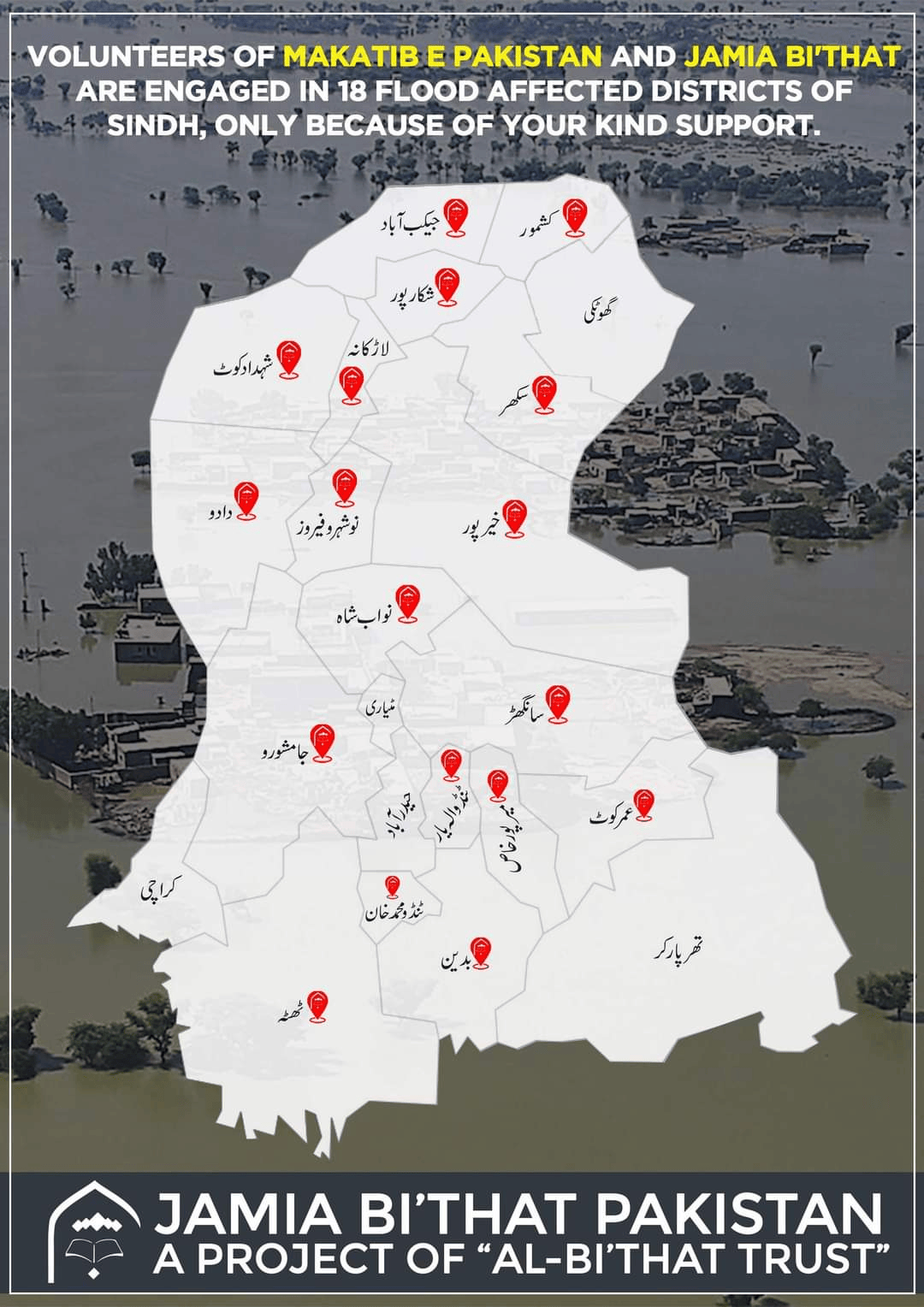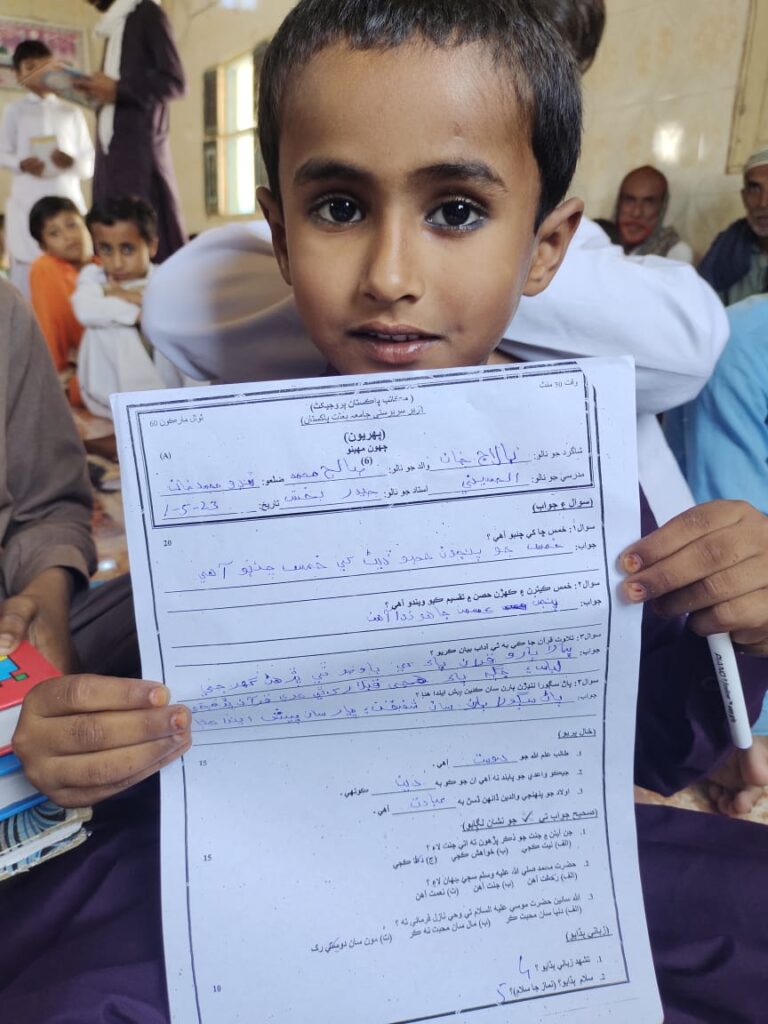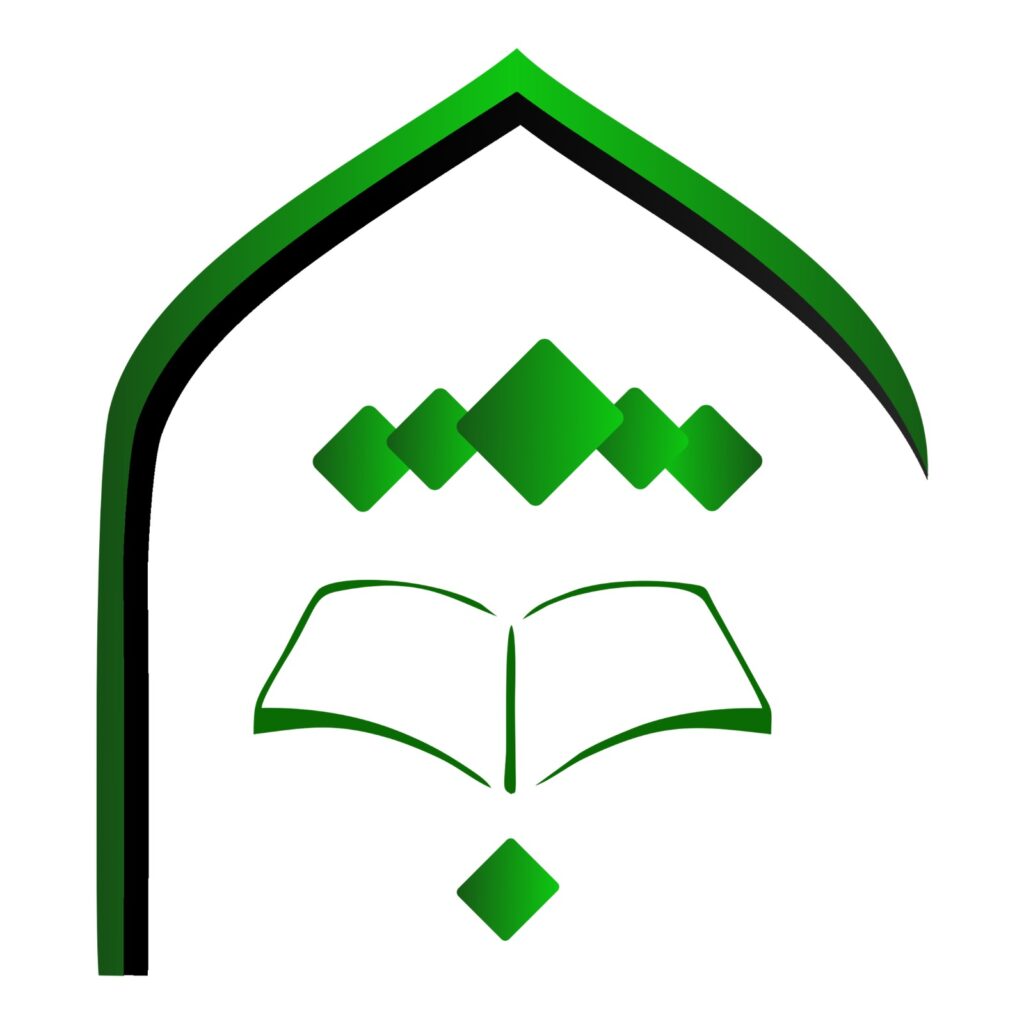صِبْغَةَ اللَّهِ وَمَنْ أَحْسَنُ مِنَ اللَّهِ صِبْغَةً وَنَحْنُ لَهُ عَابِدونَ
(سورۃ البقرہ / آیت نمبر 138 )
This is the natural Way of Allah.And who is better than Allah in ordaining a way?And we worship none but Him.
The Journey to Makatib Pakistan
Quran Centers Transformation
In 2011, recognizing the critical gap in access to Islamic education in the rural and underdeveloped regions of Sindh, a group of committed brothers from Karachi established Quran Centers in the Sanghar district. These centers, initially known as Makatib Sindh, focused on delivering the Maktab Wilayat curriculum.
In 2018, Hafiz Syed Muhammad Haider Naqvi personally visited these centers. Deeply inspired by their dedication, he provided valuable guidance and support. Acting upon his recommendations, the initiative was restructured and rebranded as the Makatib Pakistan Project, integrating it as an official subsidiary of Jamia Bi’that and aligning the curriculum accordingly.
This pivotal transformation was formally implemented in 2019, marking a new chapter in the mission to spread authentic Islamic education across Pakistan’s underserved communities.

Objectives and Goals:
Education and Training
To provide both religious and contemporary education, especially for children from underprivileged communities and rural areas. The aim is to nurture them in accordance with the divine purpose of human creation, enriching their lives with the teachings of the Holy Qur’an and the Ahlul Bayt (AS), and striving to establish an Islamic way of life within society.Propagation (Tabligh)
To spread the message of Islam, the teachings of the Qur’an, and the values of the Ahlul Bayt (AS) through organized efforts, events, and community outreach programs.Social Welfare
To serve humanity by undertaking welfare initiatives aimed at supporting the needy, promoting social justice, and fostering community upliftment.Mutual Cooperation and Collaboration
To build constructive cooperation and alliances with religious scholars, social leaders, madrasas, and relevant institutions, working together for the common good of society.Emergency Relief and Disaster Response
To actively engage in relief efforts during natural disasters, emergencies, or crises, providing immediate support and assistance to affected communities.
Classification of the Educational System:
- Al-Hamd Public High School
Tharparkar and its four branches. - Al-Hamd Public Middle School
Nawabshah. - Makatib Pakistan Project
653 Quran Centers operating in 17 districts of Pakistan, including Punjab, Khyber Pakhtunkhwa (KPK), and Kashmir.
Efforts are focused on providing both religious and modern education, particularly for disadvantaged communities and rural children, in order to fulfill the divine purposes of human creation. The goal is to enrich the nation with the teachings of the Noble Quran and Ahlul Bayt, while also propagating Islamic principles throughout society.
Educational Activities:
- Curriculum Development
Preparing the religious education curriculum under the supervision of the teachers of Jamia Bi’that. - Publication of Educational Material
Publishing and distributing books on Quranic recitation, rules, and Islamic teachings. - Establishment of Quranic Centers
Setting up Quran Centers wherever possible and arranging educational and training programs. - Teacher Appointment and Support
Appointing qualified teachers for the Quran Centers and ensuring their fair remuneration. - Deployment of Preachers
Assigning preachers to supervise and guide the Quran Centers. - Supervisory Structure
Appointing Supervisory Preachers to oversee teachers and preachers, ensuring educational quality and adherence to standards. - Central and Local Support Structure
A central team and office based in Karachi coordinate and oversee all activities. Additionally, local district volunteers—individuals with a religious background, connections to scholars, and dedication to promoting Islamic education—are empowered and supported to establish new Quran Centers under the ongoing guidance of preachers.
Features of the Current Quran Centers System:
- Comprehensive Evaluation System
- Monthly visits by preachers to all centers.
- Regular monthly written and oral examinations.
- Annual examinations for student promotion to the next level.
- Monthly exam results are made available online for transparency and monitoring.
- Integrated Educational Approach
- Alongside Quranic and religious education, students are provided with basic school education, focusing on reading and writing skills.
- Emphasis on Quran recitation, understanding its translation, memorization, and foundational education in Sindhi, Urdu, and English.
- Student Motivation and Recognition
- Outstanding students are awarded prizes on a monthly basis to encourage excellence and dedication.
- Structured Academic Progression
- Currently, the centers offer education up to the seventh grade, with plans to expand to the tenth grade.
- Students from kindergarten to seventh grade follow a standard curriculum aligned with the educational board of Jamia Bi’that.
- Innovative Teaching Methods
- Daily use of MP3 recordings by internationally renowned Quran reciters for effective teaching of Quranic rules, recitation, and memorization.
- Teachers are trained in Quranic rules and recitation through the Matin Quran Academy
- Capacity Building of Teachers and Preachers
- Quarterly workshops for preachers focusing on educational, training, and administrative excellence, conducted by senior teachers of Jamia Bi’that.
- Periodic workshops are also organized for teachers to enhance teaching methodologies and skills.
- Pathways for Higher Education
- Top-performing students are identified and provided the opportunity for higher Islamic studies at Jamia Bi’that, Chiniot.
- Standardized Curriculum
- All centers follow the Islamic studies curriculum approved by the educational board of Jamia Bi’that..
- Comprehensive Evaluation System


Educational Goals:
- Nationwide Expansion of Quran Centers
It is estimated that 20,000 to 30,000 Quran Centers are needed to serve the rural and underdeveloped regions of the country. InshaAllah, dedicated efforts will be made to progressively achieve this ambitious goal. - District-Level Al-Hamd Public School Branches
One of our key objectives is to establish at least one branch of Al-Hamd Public School in every district of Sindh. Talented students who complete the fifth grade at Quran Centers will be admitted to these schools, where they will receive quality academic and character-building education up to intermediate level (Grade 12). - Pathways to Higher Islamic Education
Outstanding students from the Quran Centers are currently being sent to Jamia Bi’that, Chiniot, for advanced and quality Islamic education. Expanding and strengthening this initiative to benefit as many deserving students as possible remains a priority among our educational goals.
Educational Targets:
- Estimating the need for 20,000 to 30,000 Quran centers in rural and disadvantaged areas across the country, with ongoing efforts to achieve this goal.
- Establishing at least one branch of Alhamd Public School in every district of Sindh, with the aim of admitting successful Quran center students up to the intermediate level.
- Sending top-performing students from Quran centers to Jamea Bait-ul-Ilm for higher-quality education, with the goal of expanding this initiative.
ESTABLISHED OFFICES BY DISTRICT
List of districts where offices have been established.
Current System Features of Schools:
- One Al-Hamd Public High School and two primary schools have been established in the Tharparkar district.
- One Al-Hamd Public Middle School is operational in the Nawabshah district.
- All these schools provide a blend of modern and quality education alongside religious education and upbringing for students.
Publicity:
- Every evening, missionaries hold gatherings at various locations to spread Islamic teachings among the local community through lessons and preaching.
- Organizing study sessions and community gatherings to further engage and educate individuals.
Community Welfare Activities by Makatib Pakistan:
- Distribution of food rations to those in need.
- Assistance with medical treatments.
- Support for marriages of deserving individuals.
- Installation of hand pumps and wells to ensure access to clean water.
- Construction of homes for eligible individuals in both normal and disaster situations.
- Providing aid during sudden disasters, including food rations, mosquito nets, bedding, tents, medical camps, and medicines.
- Supplying sacrificial animals for Eid al-Adha.
- Establishment of sewing centers for skill development.
- Organizing visits and workshops by the Makatib Pakistan team at the local level to enhance system management through community organization.
Most of the community welfare activities are carried out in collaboration with local stakeholders, ensuring their active involvement in the process. Youth selection for training programs in Karachi and interior Sindh is done in consultation with these stakeholders, providing them with the necessary skills for employment. Additionally, loans are offered to less skilled individuals to help them become self-sufficient and earn a livelihood. Our central team oversees these initiatives to foster self-reliance and eliminate a culture of dependency.
Support Services during Floods:
- Extensive damage was caused by the floods in interior Sindh in 2022.
- Makatib Pakistan teams, along with our district-level liaisons, reached the flood-affected areas, providing significant relief efforts, particularly in the regions hardest hit around our offices.
- Cooked food, rations, tents, and mosquito nets were distributed in the affected areas.
- In collaboration with the World Federation, Khawaja Jamaat, and Parsi Charity, over 500 houses were constructed for families in flood-affected regions.
- Agricultural services worth over $15,000,000 have been provided to assist in the recovery efforts.
Well Construction:
- In collaboration with Zehra Trust UK, Imam Hussain Charity, and other NGOs, 750 wells have been established in remote regions of Sindh and Balochistan.
- The total cost incurred so far amounts to $0.75 million.
Hand Pumps/Washrooms:
- Through the support of Zehra Trust UK and various donors, 500 hand pumps/washrooms were established.
- The cost incurred up to now is $ 0.25 million.
Qurbani (Sacrifice):
- Every year, with the cooperation of local and international donors, arrangements are made for Eid al-Adha sacrifices in distant rural areas of Sindh.
- Meat distribution is carried out among the deserving.
- The expenditures in 2024 amounted to Rs. 2,500,000.
Arrangement of Mourning Ceremonies:
- In the months of Muharram and Safar, scholars arriving from Qom and local missionaries conduct mourning ceremonies and processions in rural and marginalized areas of Sindh.
